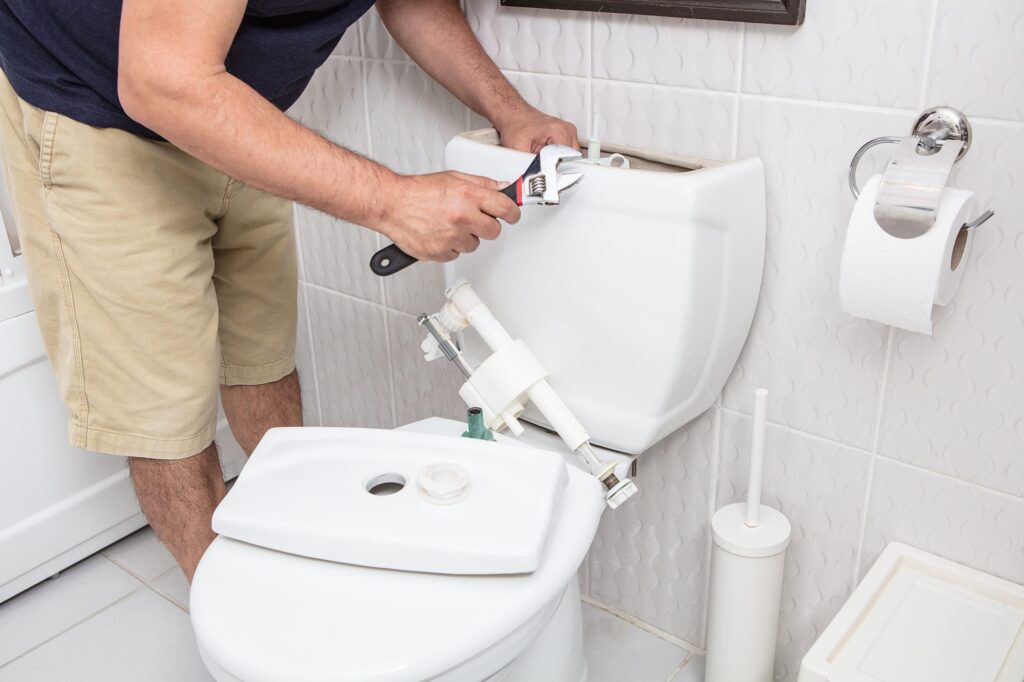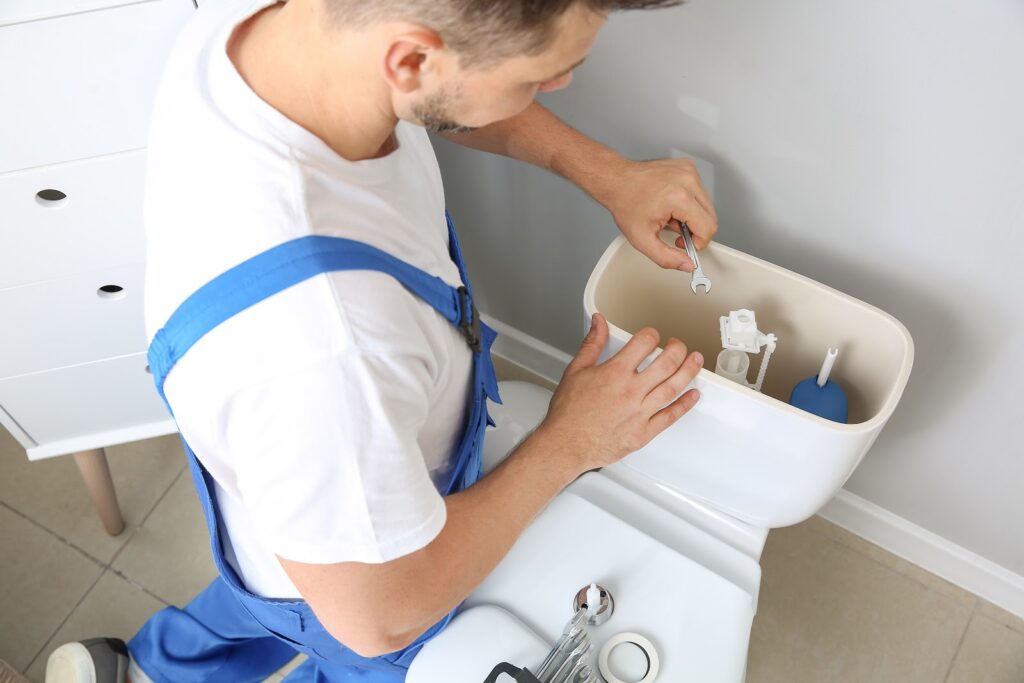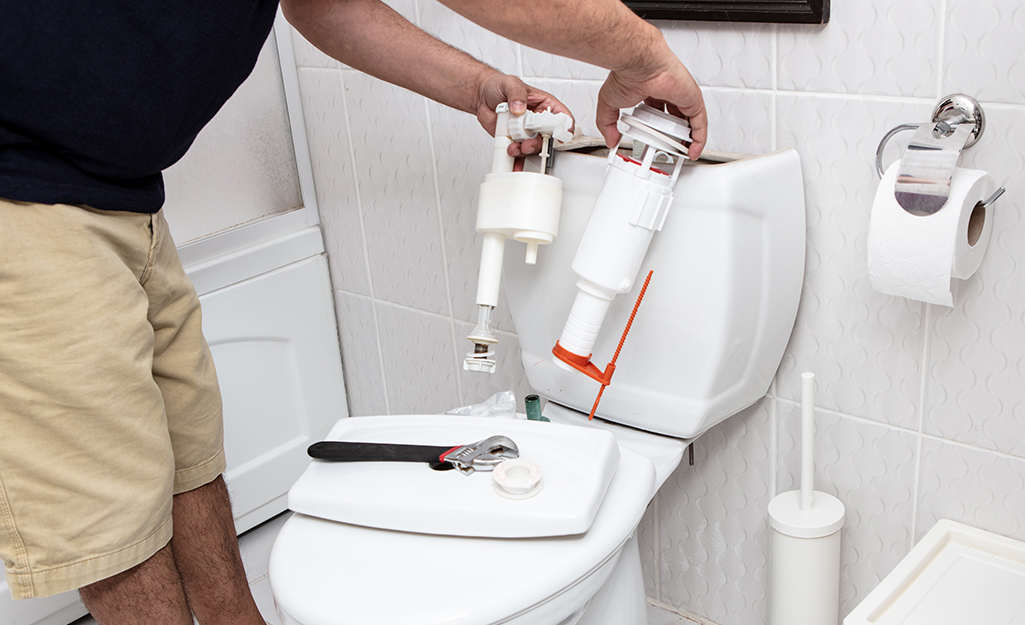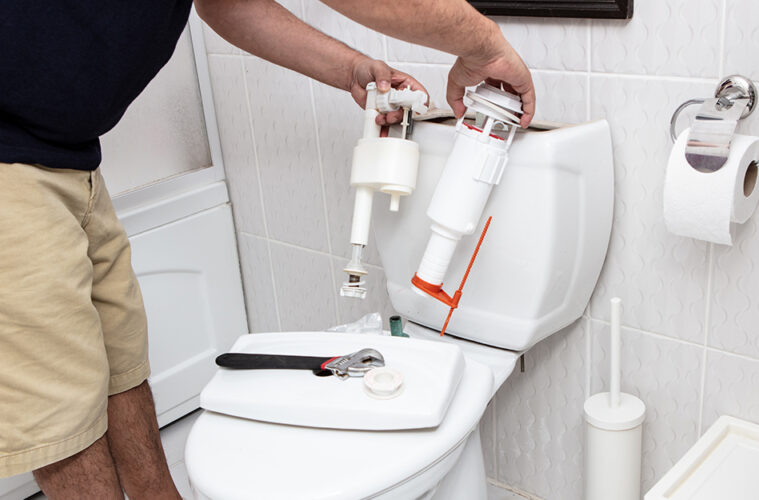A running toilet is more than just a nuisance, it can also lead to a significant waste of water and an increase in your utility bills.
A running toilet can sometimes be fixed with a few tools and some DIY skills. However, it’s also important to know when a problem is beyond your expertise and a professional plumber’s help is needed. When that is the case, if you search plumbers Idaho, for instance, you can find the professional help needed to fix the issue.
In the meantime, here are five key points to consider when attempting to fix a running toilet.
Make Sure you Diagnose the Problem Correctly

source: topofthelineplumbing.com
Understanding the root cause of the problem is essential. A running toilet can result from various issues. These could be things such as a faulty flapper, a broken fill valve, an imbalanced float, a leak in the tank, or even a silent leak.
Start by inspecting the tank. Check the water level to see if it’s above the overflow tube, as your issue might be with the float or the fill valve. If the flapper doesn’t seal properly, water will continue to flow from the tank into the bowl. Sometimes, the solution can be as simple as adjusting the chain that connects the flapper to the flush handle.
Gather the Right Tools and Replacement Parts
Before starting your repair, ensure you have the necessary tools and parts. Typical tools needed for a job like this include a pair of gloves, a wrench, a screwdriver, and possibly a small cup or bowl for draining water.
If you need to replace parts, such as the flapper or the fill valve, make sure you purchase the correct type for your toilet model. Universal repair kits are available, but it’s always best to check compatibility.
Shut Off the Water Supply and Test Beforehand

source: marquezplumbing.com
Always turn off the water supply to the toilet before beginning any repair. This valve is typically located on the wall behind or near the base of the toilet.
Once the water is off, flush the toilet to drain the water from the tank. If the water does not stop running even after the shut-off, your problem might be with the shut-off valve itself. This issue often requires professional plumbing assistance.
Be Patient and Precise
Toilet mechanisms are not overly complicated, but they require precise adjustments. When replacing parts or adjusting the float and the flapper, take your time to ensure everything is correctly aligned and securely fitted.
Always double-check your work to make sure that the new components function as they should and that there are no leaks.
Know When to Call a Plumber

source: moderneraplumbingandgas.com.au
If you’ve tried the steps mentioned and the toilet is still running, or if you encounter a problem that seems complex, like a leak in the tank or an issue with the plumbing line, it’s time to call a professional plumber.
If you’re not comfortable with any part of the repair process, it’s always better to seek professional help rather than risk causing further damage.
Fixing a running toilet can often be a simple DIY project, but it can also be a job that requires professional plumbing help. Either way, remember that addressing a running toilet promptly not only saves water but also prevents more significant and costly plumbing issues down the line.



![30+ Japanese Interior Design Style With Images [2024] japanese interior design](https://thearchitecturedesigns.com/wp-content/uploads/2018/11/23.japanese-interior-design.jpg)